
A multiple myeloma expert introduces and defines relapsed/refractory myeloma and discusses typical treatment strategies.

Your AI-Trained Oncology Knowledge Connection!


A multiple myeloma expert introduces and defines relapsed/refractory myeloma and discusses typical treatment strategies.

CancerNetwork® spoke with Francesco Ravera, MD, PhD, during the American Association for Cancer Research Annual Meeting 2021 to discuss results of a study aimed at determining pathological complete response in patients with locally advanced breast cancer by either cell-free DNA assessment or traditional MRI.
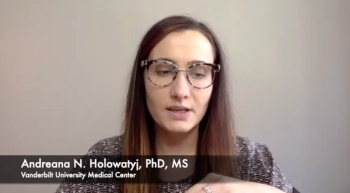
The lead author spoke about the rising incidence of early-onset colorectal cancer, which was the focal point of her research presented at the American Association for Cancer Research Annual Meeting 2021.
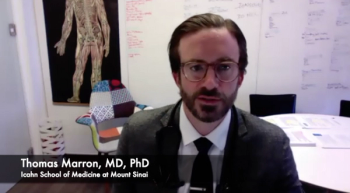
Marron spoke about the value that neoantigen vaccines can provide by studying T-cell responses and the characteristics of lymphoid response to antigens.

CancerNetwork® spoke with Francesco Ravera, MD, PhD, during the American Association for Cancer Research Annual Meeting 2021 to discuss a study that looked at cell-free DNA assessment compared with traditional MRI for determining pathological complete response in patients with locally advanced breast cancer.

Dr Raoul Concepcion leads a panel discussion on a case of a 64-year-old man with multifocal prostate cancer treated with IMRT who refused ADT.
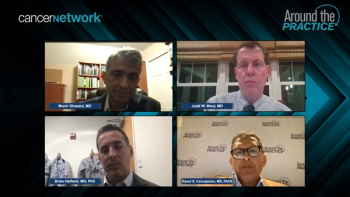
Munir Ghesani, MD, an expert in nuclear medicine, describes the factors that differentiate available tracers and provides guidance on tracer selection.

CancerNetwork® sat down with Health and Wellness expert Sonia Jhas to discuss best practices for avoiding unhealthy eating habits on a demanding schedule.
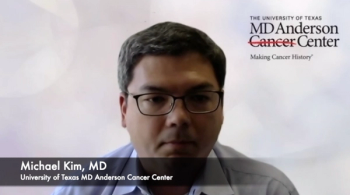
Kim discussed the need for further CREB inhibitor combinations to target collateral pathways and improve patient outcomes.
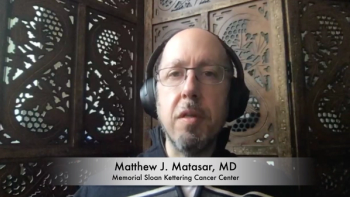
The lymphoma expert discussed how adding copanlisib to rituximab improved progression-free survival, while demonstrating a manageable safety profile in patients with relapsed indolent non-Hodgkin lymphoma.

Daniel Ahn, DO, reviews MRD as a novel approach to assessing risk for recurrence and response to treatment in early stage CRC.
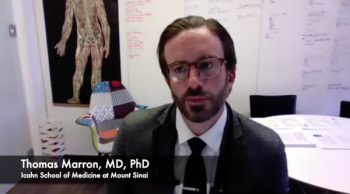
Marron discussed the next steps to a trial of PGV-001, specifically centered around determining the immunogenicity of vaccinated patients against their antigens.

During an After Hours segment of Medical World News®, Nina Shah, MD, spoke about her new passion for Peloton, the convenience of working out from home, and the importance of getting out of the office for personal health and wellness.

The lymphoma expert offered highlights from the meeting, with hopes that more treatment options will be available for patients with lymphoma.
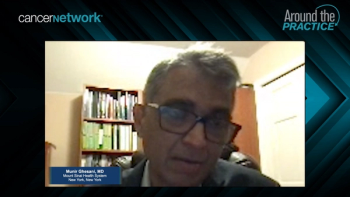
An expert panel reacts to polling data on choice of imaging modalities for patients with prostate patients after definitive therapy and share their insights about best practices.
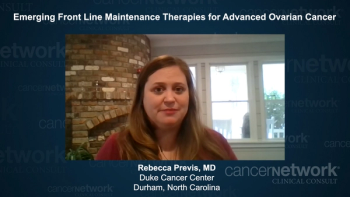
Dr. Rebecca Previs shares data on some exiting emerging therapies in the front line setting for patients with advanced ovarian cancer.
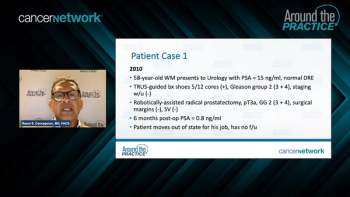
Raoul Concepcion, MD, presents the case of a 58-year-old man who had a radical prostatectomy 6 months prior and discusses how aspects of the case influence treatment selection.
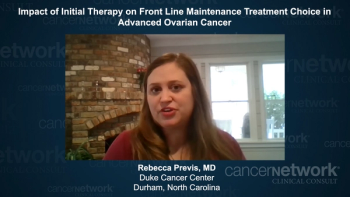
An expert in ovarian cancer describes how initial first line therapy impacts first line maintenance options.

Around the Practice: Metastatic Castrate Resistant Prostate Cancer

Around the Practice: High-Risk Renal Cell Carcinoma

CancerNetwork® spoke with Abdulraheem Yacoub, MD, during the American Association for Cancer Research Annual Meeting 2021 to discuss how predictors of response to therapy may be just as important as the development of new therapies for advancing outcomes in myelofibrosis and myeloproliferative neoplasms.
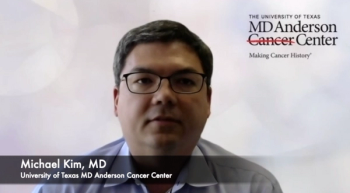
Kim detailed the specifics of his research from the American Association for Cancer Research Annual Meeting 2021 focusing on novel therapies to target mutations and upstream or downstream pathways.
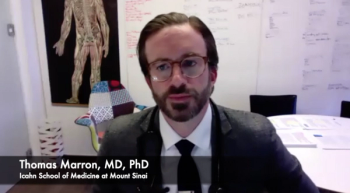
Marron detailed the research process for a phase 1 trial of PGV-001 presented virtually at the American Association for Cancer Research Annual Meeting 2021.

CancerNetwork® spoke with Vivek Subbiah, MD, during the virtual American Association for Cancer Research Annual Meeting 2021 to discuss the most important data to come out of the meeting regarding therapy for tumors harboring KRAS mutations.

CancerNetwork® spoke with Matthew D. Galsky, MD, during the American Association for Cancer Research Annual Meeting 2021 to discuss leading data to come out of the meeting and what it means for the future of cancer systemic therapy.

Dr. Rebecca Previs talks about when first line maintenance therapy is appropriate and which patients should be presented with this option.

Dr. Rebecca Previs discusses the role of PARP inhibitors in first line maintenance therapy in advanced ovarian cancer.
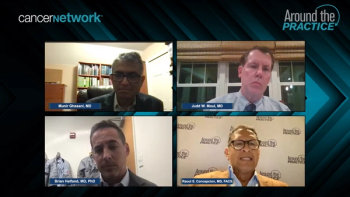
Experts in prostate cancer discuss considerations for initiating ADT therapy after definitive treatment in patients with prostate cancer in the context of biochemical recurrence.
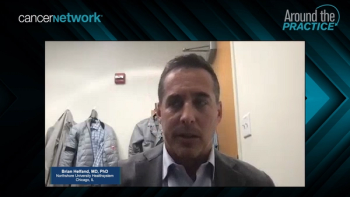
Brian Helfand, MD, PhD, describes the ways in which the PSA nadir can be defined after definitive therapy and the implications of the definition used for patients with prostate cancer.

The lymphoma expert discussed how the addition of copanlisib to rituximab may add another treatment option for patients with relapsed indolent B-cell lymphomas.